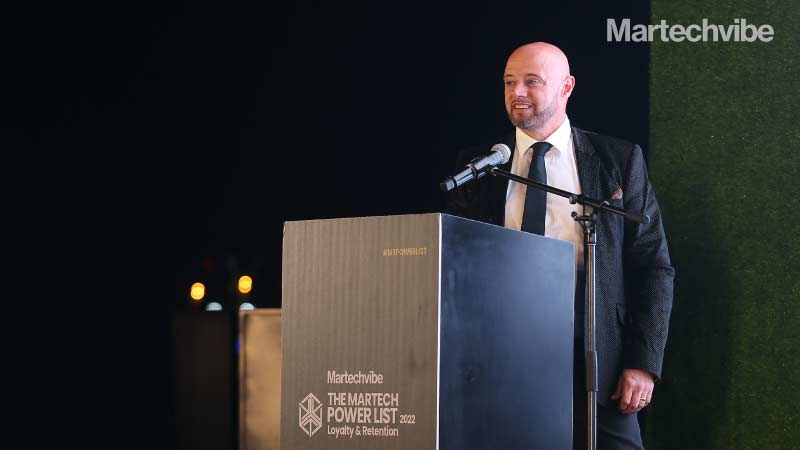Loyalty Learnings From The Martech Power List Awards
Brands have an opportunity to give something back, and help consumers navigate the economic downturn, says Paul Wallis, Director of Growth at Epsilon in MENA In an exclusive award ceremony in Dubai last week, Martechvibe acknowledged 30+ enterprises in two categories – retention and loyalty to celebrate the teams using marketing technologies to further their […]
Topics

Paul Wallis, Director of Growth at Epsilon in MENA
Brands have an opportunity to give something back, and help consumers navigate the economic downturn, says Paul Wallis, Director of Growth at Epsilon in MENA
In an exclusive award ceremony in Dubai last week, Martechvibe acknowledged 30+ enterprises in two categories – retention and loyalty to celebrate the teams using marketing technologies to further their strategies. Epsilon, an outcome-based marketing technology company, presented The Martech Power List 2022 in the Loyalty category.
We caught up with Paul Wallis, Director of Growth at Epsilon in MENA, to talk about what’s in store for loyalty strategies in 2023.
Excerpts from the interview;
What are the differentiators and critical points that define loyalty marketing programmes in the APAC and MEA regions from the rest of the world?
One thing that makes this region particularly challenging and also interesting – is we have such a wide demographic of people. This is certainly the case in Dubai, which is largely an expat-based community with lots of locals and different nationalities from all over the world. It’s like a dream for marketers but also a massive challenge because you’ve got all these nationalities to appeal to.
If you build a campaign or loyalty programme in Dubai, you can’t replicate that for the Saudi market. The Kingdom of Saudi Arabia is emerging now, and it’s predominantly a Saudi national market. So, you have to adapt your strategies for every market you enter in the Middle East.
It can be very challenging but, at the same time, very rewarding. It makes the region unique to other parts of the world I’ve worked in.
Considering the present economic situation that predicts tighter purse strings next year, do you think brands will stay afloat by running successful loyalty programmes?
It’s a real opportunity for brands, especially if they have a well-managed loyalty programme ready to engage with their customers and do something to help them go through the pain of the recession together.
Driving loyalty shouldn’t be about only trying to win your consumer’s business; when times are good and the money’s rolling in, I think it’s important. But brands can take a lot of loyalty back when they understand the pressures consumers are under and try to give a little back if they can afford to. Everybody feels the pinch.
The long-term benefit for brand engagement and loyalty will far outweigh the extra cost involved in giving a little extra in hard times.
Which technologies will disrupt customisation and personalisation segments?
Data. That is going to disrupt the whole thing. At the moment, I’m seeing a lot of technology available but not utilised to its maximum potential. Whether it’s laziness, or a lack of investment in certain areas – I don’t know. But to get personalised data to disrupt and have consumers be able to engage with the loyalty programme – that will be the true disruptor.
It will move away from just an engagement of, say, do this and you’ll learn this. It will be more personal; it will be relative to the consumer. As we move forward, the whole Web3 play is where consumers will start owning their data again. It will be up to the brands to gain trust and get their consumers to part with their data so they can build that loyalty and engagement. That’s just coming around the corner.





